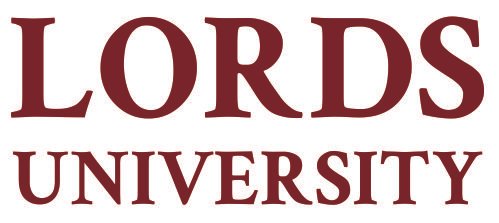Tips & Tricks While Preparing Your Entrance Exam
Entrance exams are used to evaluate a student's preparation for postsecondary education. These tests are a crucial component of the college application process and are meant to assess a candidate's aptitude for a particular subject as well as their knowledge and proficiency in it. It is impossible to exaggerate the significance of entrance tests since they decide a student's admission to the college of their choosing.
But preparing for these exams can be exhausting, and you need a strategy that will suit you well. In this blog, we will talk about effective tips and tricks while preparing for your entrance exam. These tricks will help you with your time and stress management during your entrance exam preparation trip.
Though it is not guaranteed that these tips will get you through your entrance exam, they will definitely improve your chances of success, you should always strive to maximize the use of your preparation time.
Here are some tips and tricks while preparing for the entrance exam:
Early preparation is better preparation: The importance of starting early for any entrance exam is paramount. This approach will never disappoint any student. A lot of time it happens that students procrastinate their preparation due to various reasons like feeling overwhelmed with the syllabus, pre-deciding their failure or perceived lack of urgency. All of these factors may lead to delays in preparation and make it more challenging for students to begin their preparation. Therefore, students must address these challenges as early as possible and make improvements to achieve better outcomes.
Know your syllabus well: Knowing your syllabus well is a crucial step in one’s preparation. Students should make sure that they familiarize themselves with the syllabus and the exam structure. Being prepared ahead of the kind of questions that will come in your entrance exam will make your preparation even better. One exam strategy does not work for all formats. For instance, if the exam paper is going to be multiple choice questions or an essay type, you can allocate proper time to them equally.
Choose your Study Materials Wisely: Students must ensure that the study material they choose comes from reputable sources such as well-known public houses and coaching institutions. One should also be careful that they complement your style of studying. Some books have overly complex study material which should be avoided. The quality and credibility of the study material are crucial to be aware of before choosing them.
Identify your strengths and weaknesses: Students must identify their strengths and weaknesses before preparing for the exam. A self-reflection and assessment of experience, achievements and challenges will help students to identify their strengths and weaknesses. You should make a list of skills and knowledge required for the exam. One should be aware of the subjects they are good at and subjects they will need more preparation for.
Plan your studies effectively: Planning your studies effectively will make it easier for students to make the most of your time and resources. One should set clear goals and achievable goals for your study sessions. These could be daily, weekly, or monthly goals, depending on the timeline of your study plan. Make sure your goals are realistic and aligned with your overall objectives. Divide the material you need to cover into smaller, manageable chunks. This makes it easier to tackle and prevents being overwhelmed. Create a study schedule outlining which topics you'll cover on which days or weeks.
Practice makes you perfect: The importance of consistent and deliberate practice in achieving excellence or mastery in a particular subject. Regular and consistent practice is key to improvement. Set aside dedicated time each day or week to practice the skill you want to master. Students should focus on the quality of their practice rather than the quantity. Concentrated, focused practice sessions are more effective than aimless repetition.
Take Mock Test: Taking mock tests is an excellent strategy for exam preparation as it simulates the actual exam environment and helps identify areas for improvement. Choose mock tests that closely resemble the format, difficulty level, and content of the actual exam. Look for reputable sources such as official practice tests provided by exam boards or trusted educational websites. Allocate specific days or times in your study schedule to take mock tests.
Take regular breaks: One must allocate specific times for breaks in a study schedule. Aim for short breaks every 45 minutes to an hour to prevent mental fatigue and maintain concentration. Consider using the Pomodoro Technique, which involves studying for 25 minutes followed by a 5-minute break. During breaks, step away from your study area to give your mind a rest. Take a short walk, stretch, or do some light exercise to increase blood flow and alleviate tension.
Revise Regularly: Regular revision is indeed crucial for effective exam preparation as it reinforces learning, enhances retention, and helps identify areas that require further review. Revision strengthens memory recall by reinforcing connections between concepts and information. When you revisit a material multiple times, you deepen your understanding and increase the likelihood of retaining it for the long term. Through revision, you can identify gaps in your understanding or areas where you need further clarification.
Be prepared for Exam Day: Preparation on exam day is crucial for minimizing stress and anxiety. Ensure you have all required documents, including your admission card and identification, and arrive at the exam center well in advance of the scheduled time. This will help you feel more confident and ready to do your best.
In conclusion, starting to prepare early, knowing your syllabus well, choosing your study material wisely, knowing strengths and weaknesses, planning your studies effectively, practicing, taking mock tests and regularly revising for the exam are key to getting successful results in the exam.
